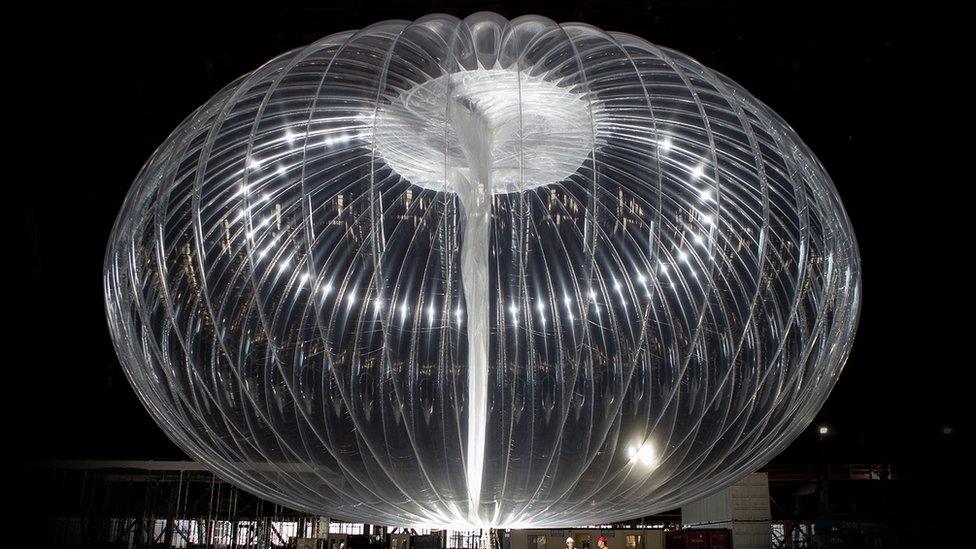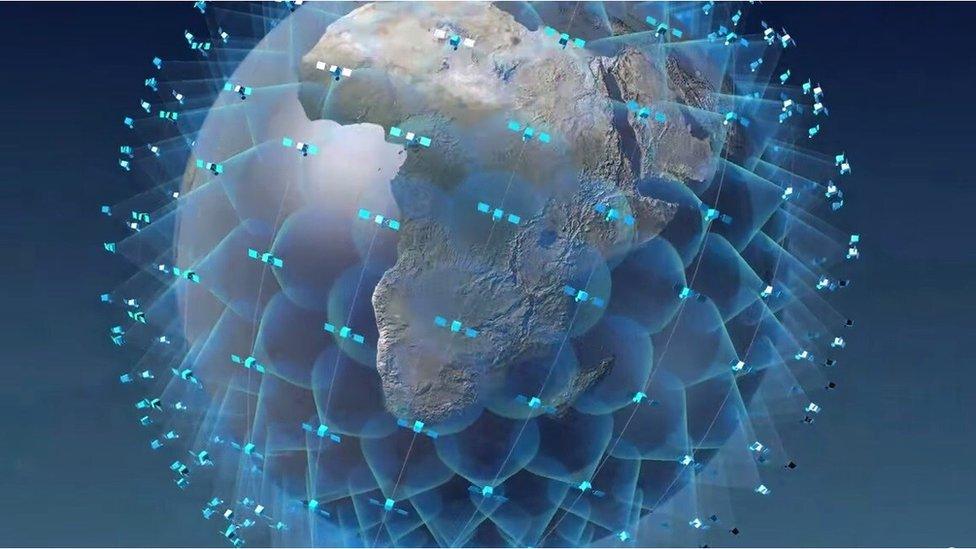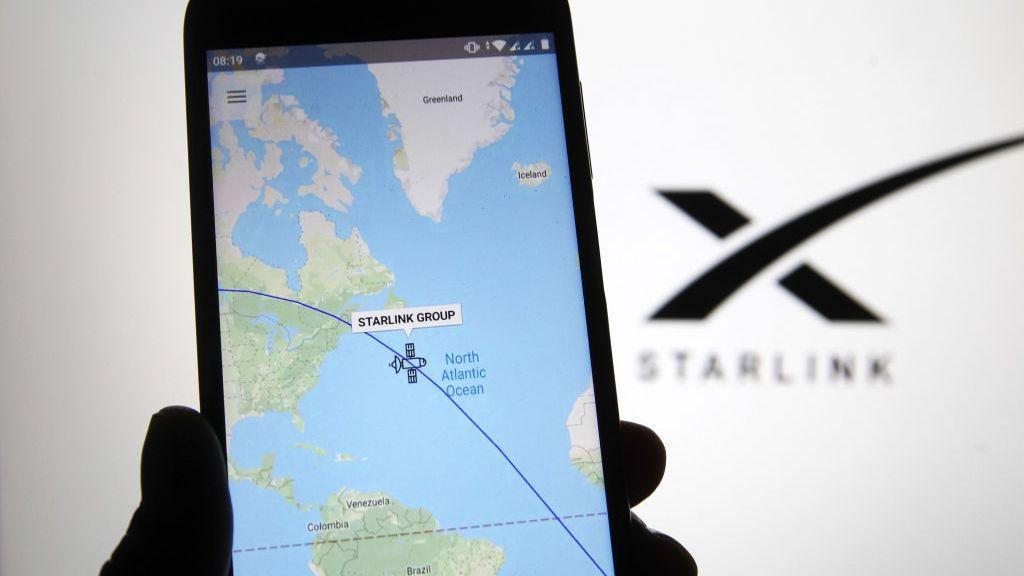Satellites beat balloons in race for flying internet
- Published

Loon launched 35 of its balloons
Satellites - once the poor relation of broadband providers, considered the slowest, most expensive option and a real last resort - have become the hot favourite in the race to connect the world in places land-based internet does not reach.
Ambitious alternatives have bitten the dust.
Last week, Google scrapped its Loon company, set up nine years ago to beam the internet down to rural areas via a network of large balloons but unable to "build a long-term, sustainable business".
And Facebook abandoned Aquila, its flying-internet project using drones, in 2018.
But satellite-based services, such as Elon Musk's Starlink, are taking off - in every sense.
Weather-proof reliability
Large, relatively low-flying satellite networks have the potential to bring the internet to rural areas and "notspots" anywhere in the world.
And the latest offerings promise high speeds, low latency and weather-proof reliability - eventually.
Starlink, which aims to deliver broadband internet around the world via 42,000 satellites, is already being used by a small number of people in the UK and North America.
And rival service OneWeb, though not yet ready for customers, has resumed launching satellites after being rescued from bankruptcy by Indian conglomerate Bharti Global and the UK government last year.

OneWeb has ambitious plans for satellite coverage
Another serious competitor, Amazon's Project Kuiper, plans to launch more than 3,000 satellites of its own.
And earlier this month, Beijing announced measures to support its growing satellite-broadband sector, the South China Morning Post reported., external.
All that adds up to an awful lot of satellites, which has caused concern among astronomers and stargazers.
Dr Alice Gorman, for example, says there is no doubt these "mega-constellations", visible chains of satellites, are changing the night sky.
"The mega-constellations are being sold with the idea that satellite broadband is a universal good," she told BBC News.
"It is important to remember that the motivation for these constellations is not philanthropy but profit
"Satellites are not the solution to everything.
"The lack of internet access in some places is due to the lack of investment in terrestrial infrastructure."
Time-lapse footage of Starlink satellites taken from the Peak District
Samantha Lawler, assistant professor of astronomy, at the University of Regina, in Canada, meanwhile, warned of, external a "mundane highway of moving lights, obscuring the stars".
Mr Musk's response has been characteristically brusque, however.
"There are already 4,900 satellites in orbit, which people notice [about] 0% of the time," he tweeted.
Allow X content?
This article contains content provided by X. We ask for your permission before anything is loaded, as they may be using cookies and other technologies. You may want to read X’s cookie policy, external and privacy policy, external before accepting. To view this content choose ‘accept and continue’.
Some of these services will supply internet direct to customers, others via existing providers such as mobile-phone networks.
But Loon was unable to turn a profit despite having secured significant commercial partnerships with mobile networks in Africa.
And OneWeb remains $1-1.5bn short of funding.
'Risky investment'
"The biggest challenge will be affordability," CCS Insight analyst Kester Mann said.
"Space is a huge and risky investment.
"And it may take many years before devices fall sufficiently in price to become appealing to the mass market.
"This will be particularly relevant in emerging markets."
And that means costs will have to be recouped from consumers.
SpaceX charged $99 (£75) per month for its initial trial offering in North America, external, plus a one-off $499 fee for the hardware.
And that came with a warning that, at least at first, the service might not always work.
'Definitely sell'
"Pricing is undoubtedly one of the biggest challenges," Mr Mann said.
"If you live in a rural area and you can afford it - particularly if you rely on connectivity for work and have no other options - then it will definitely sell.
"But as a mass-market solution, it will need to come down in price.
"This is particularly relevant for the UK, where people are accustomed to paying much less for their broadband bills than US consumers."
- Published11 January 2021

- Published18 December 2020

- Published27 June 2018